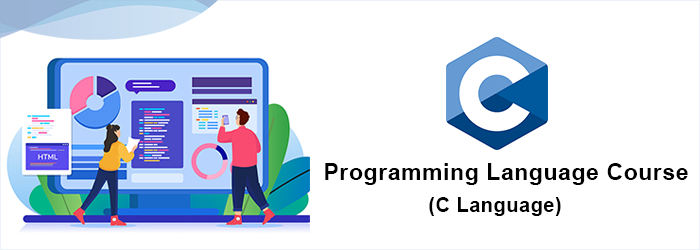Let's Chat!



C is an imperative computer programming language that supports structured programming, lexical variable scope, and recursion, but a static type system precludes many unwanted actions.
This C programming course teaches the fundamentals of C programming.
People will learn how data is handled by programming languages, what program flow is, and how to use functions, methods, and routines.
People will also be given step-by-step instructions on how to construct and run simple C programs.
This C programming training is suitable for:
To enrol in our C language certification training, you only need: